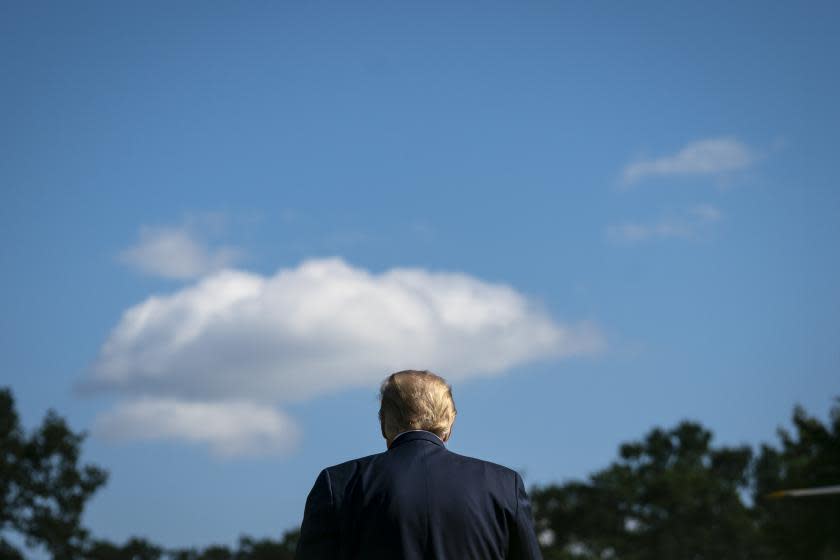The scary foreign policy implications of Trump's COVID-19 diagnosis

As of Friday morning, President Trump's COVID-19 symptoms are reportedly mild and Vice President Mike Pence has tested negative for the virus. But if things take a turn for the worse in the White House, with House Speaker (and Democrat) Nancy Pelosi next in line of succession, things could get scary very quickly — and nowhere more so than in foreign policy.
The greatest danger would be the possibility of foreign powers taking advantage of the domestic chaos embroiling the senior leadership of the country to make bold moves on the world stage, perhaps in coordination. Imagine Vladimir Putin making a deeper incursion into Ukraine or attempting to seize one of the Baltic states (probably Lithuania) — while China, in the boldest and riskiest act of all, makes a move against Taiwan.
One or both of these scenarios are likely in the coming decade, as rising or defiant powers seek to test American resolve in attempting to uphold the liberal international order. But a succession crisis would present a unique opportunity to undertake the test ahead of schedule, at a moment when the United States is maximally distracted.
Of course our internal confusion wouldn't guarantee that the U.S. would let the provocation(s) stand. On the contrary, one could imagine a scenario in which some combination of Secretary of State Mike Pompeo, Secretary of Defense Mark Esper, and the Joint Chiefs of Staff bypass a sidelined West Wing to mount a military response.
Would this be a responsible act of bold statesmanship by unelected officials? Or a military coup? Two weeks ago, it seemed we were already living through interesting times. Two weeks from now, we could learn that we hadn't seen anything yet.
More stories from theweek.com
7 insanely funny cartoons about the chaotic first debate
White House doctor says he left out details of Trump's illness to reflect president's 'upbeat attitude'
Why hinting at Trump's discharge could increase speculation about his health

